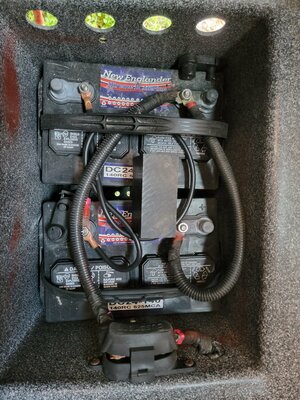Tioga montara
RVF Regular
- Joined
- Sep 18, 2022
- Messages
- 10
House batteries aren't holding a charge. Found some everstart group 24dc at Walmart for replacement. Is there anything special I need to do befor disconnecting? I plan on turning off the aux power, motor and generator will be off. Is there a fuse to pull or anything else? Dont feel like getting electrocuted.













